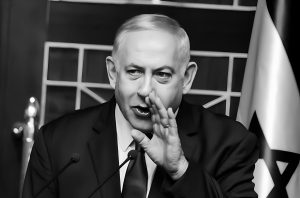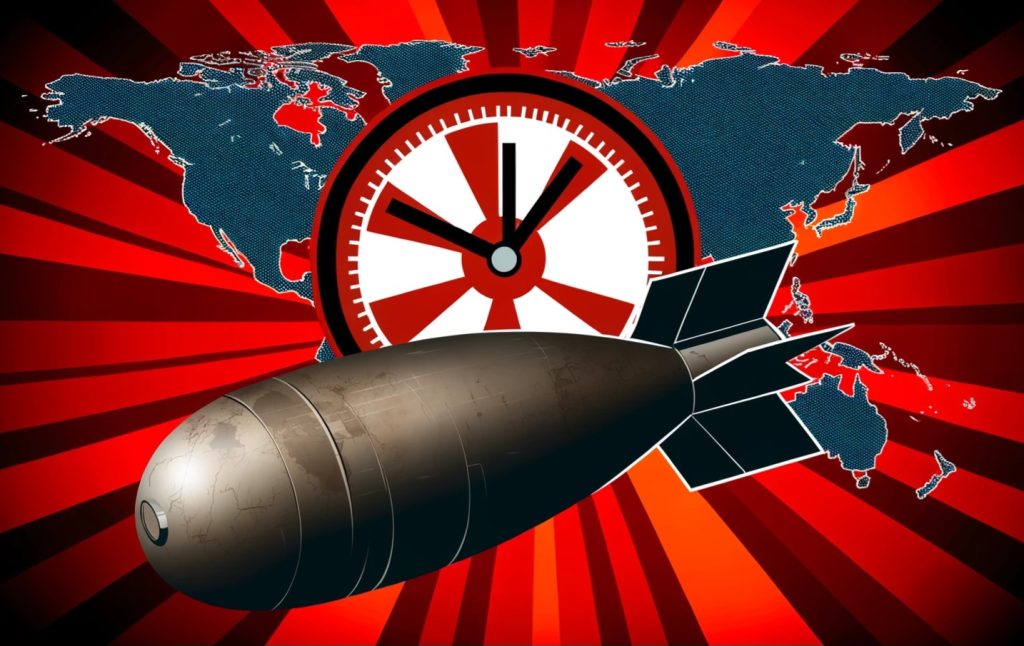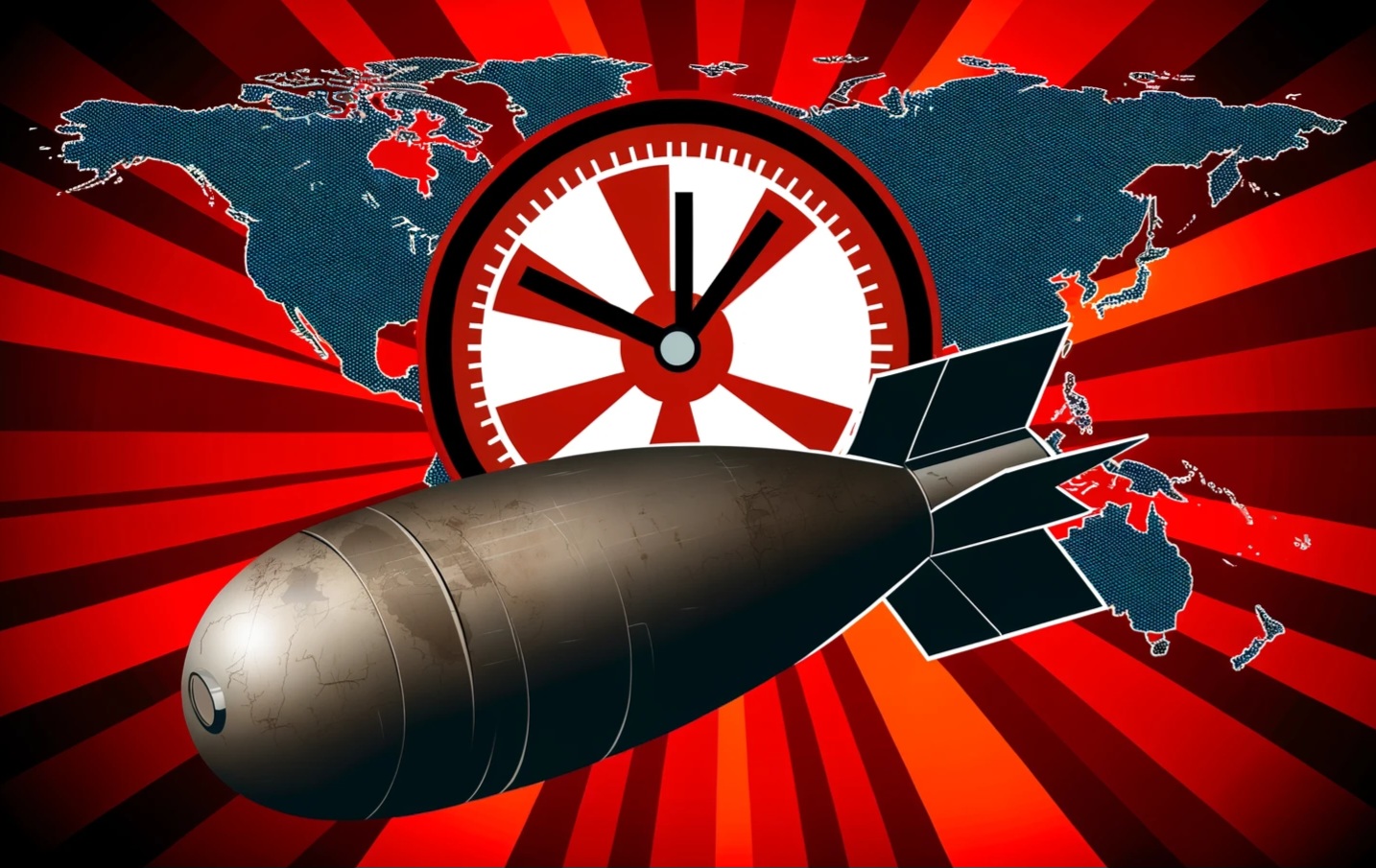
In today’s world, the presence of nuclear weapons emerges as one of the most critical factors capable of sustainably altering power balances in the international arena.
MARCH 10, 2024

Nuclear weapons are powerful instruments capable of releasing vast amounts of energy, typically resulting in explosions or near-explosive thermal energy. Fission nuclear weapons operate by bombarding heavy atomic nuclei such as uranium or plutonium with neutrons, while fusion nuclear weapons work by combining light atomic nuclei such as hydrogen. They are highly dangerous and effective weapons that can convert their explosive power into significant destructive effects, often leading to large-scale death and devastation. Some of the world’s most powerful nuclear weapons include the Tsar Bomba (Soviet Union/Russia), RDS-220 (Soviet Union/Russia), B83 (United States), RS-28 Sarmat (Russia), and R-36M2 Voyevoda (Russia).
The tension created by nuclear weapons is uniform across societies and races. In international relations, the agenda concerning nuclear weapons holds significant importance. Particularly amidst rapidly adaptable technological advancements in everyday life, technological developments in defense industries can also be swiftly applied. Alongside asking whether all countries possessing nuclear weapons would be advantageous or disadvantageous, another question arises: What would the world be like if all countries, regardless of their economic status and level of development, possessed nuclear weapons?
The first issue to consider regarding nuclear weapons is the escalation of threats and security risks. When countries strive to defend their borders and diplomatic relations prove inadequate, the impulse and display of power that may come into play could lead states to consider this option. All countries having nuclear weapons could potentially lead to increased levels of insecurity and threat perception in international relations. A country’s possession of nuclear weapons could be used as a coercive tool against other countries, leading to international crises and tensions. Hence, the issue of nuclear weapons is highly sensitive for all states and societies.
Apart from diplomatic relations, unforeseen events may unfold. The presence of nuclear weapons in all countries could increase the risk of nuclear war due to miscalculations or accidental conflicts. The complex dynamics and tensions in international relations could lead to a country initiating a nuclear attack due to misinterpretations. In such a scenario, attempts to rectify the situation would be too late as one party would have inflicted irreversible damage on the other. The presence of nuclear weapons in a country could lead to security measures that hinder accurate information flow or disrupt communication channels, leading to misunderstandings and erroneous decisions. In such a situation, there would be only one outcome – the parties formally engaging in war.
Furthermore, along with the confidence instilled by nuclear weapons, countries could claim the right to provoke each other. A country could use nuclear weapons as a threat to provoke or pressure another country. Such provocative actions could escalate tensions and increase the risk of accidental nuclear conflict.
So, in a scenario where all countries, regardless of their economic status and level of development, possess nuclear weapons, what changes would occur in diplomatic relations? Firstly, in such a situation, the likelihood of pursuing a peaceful policy would increase due to the inter-state tension caused by nuclear weapons during a crisis. While one might think that diplomacy would become obsolete, its importance would actually increase significantly. In the event of a potential war, states would feel a responsibility not only towards the enemy state but also towards the entire world due to the potential damage they could inflict on humanity and the world at large. For example, if Palestine had possessed nuclear weapons in the current era, would Israel’s stance towards Palestine have been the same? Certainly not.
For powerful states in the world, the strength of their defense industries is of utmost importance. In this world where the powerful often oppress the weak, with power mostly consisting of weaponry and economy, states would naturally struggle to establish dominance over each other. Even militarily weakest countries would become equal to the most powerful countries in the world. However, the power and resources of powerful states should not be used solely for coercive or oppressive policies. Instead, powerful states should use their power to serve the broader interests of the international community by assuming leadership roles for global peace and stability. Diplomacy, cooperation, and international law play crucial roles in finding peaceful solutions.
Looking at recent events such as the Ukraine-Russia relations, when diplomacy failed to prevent Russia’s aggressive actions despite warnings, Russia caused significant long-term damage to Ukraine. Ukraine, however, shifted to defense mode. Yet, as Russia is much stronger militarily and in terms of defense industry compared to Ukraine, Ukraine suffered extensive destruction in the attacks. If Ukraine had possessed nuclear weapons, would it have been ethical for Ukraine to use them against Russia? When countries find themselves in dire situations, is it ethical for them to deploy their most powerful weapons internationally?
In this case, the presence of Ukraine’s nuclear weapons might have somewhat restrained Russia’s actions. However, if both countries were to deploy their most powerful weapons in an official state of war, we would face extremely challenging processes in terms of climate and international law. Geopolitically neighboring countries would also suffer significant damages from a war they were not directly involved in, and there would be no way to compensate for it. In such a scenario, the affected region, fueled by a sense of revenge, would likely use their most powerful weapons against the country they perceive as guilty. In short, each country would enforce its justice, destroying a vast ecosystem in the process. This would demonstrate that uncontrolled power is not power.
Diplomacy carries the responsibility of ensuring peace among societies. Even if all countries were to possess nuclear weapons under equal conditions, agreements, diplomatic restrictions, and international law would minimize the damage states would incur. Existing agreements such as the Treaty on the Non-Proliferation of Nuclear Weapons (NPT) aim to control the spread of nuclear weapons and encourage suspended states to relinquish them. However, progress in cultural and human rights areas is also essential. Efforts should be made in cultural diplomacy and human rights advocacy to increase understanding and cooperation among societies. This not only promotes the control of nuclear weapons but also fosters a broader environment of peace and security.
In conclusion, effective diplomacy and international cooperation can help minimize the potential risks of nuclear weapons for all countries. This is a critical step in preserving peace and security, requiring collective efforts from the international community.
A curated seletion of FA’s must-read stories.
Written By: SHAGNIK BARMAN
Written By: BERK TUTTUP
Written By: ABBY L’BERT
Written By: BILLY AGWANDA
Written By: HIRA SARWAR
Written By: BATUHAN GUNES
Written By: LEON REED
Written By: DARSHAN GAJJAR

Simay Dikici is currently studying at Yeditepe University, Department of Political Science and International Relations. She is active in the FAES club association, serves as a member of parliament and serves as a writer at the United Nations Summit. Her main areas of study are international law and diplomacy.
Written By: GABRIEL RAMIREZ
Written By: DILARA SAHIN
Written By: DILRUBA YILMAZ
Written By: NILAY CELIK
Written By: ELDANIZ GUSSEINOV
Written By: JOSEF SCHOEFL
Written By: SELCAN BEDIRHANOGLU
Written By: FATIH CEYLAN
FA’s flagship evening newsletter guilding you through the most important world streis ofthe day. Delivered weekdays.
